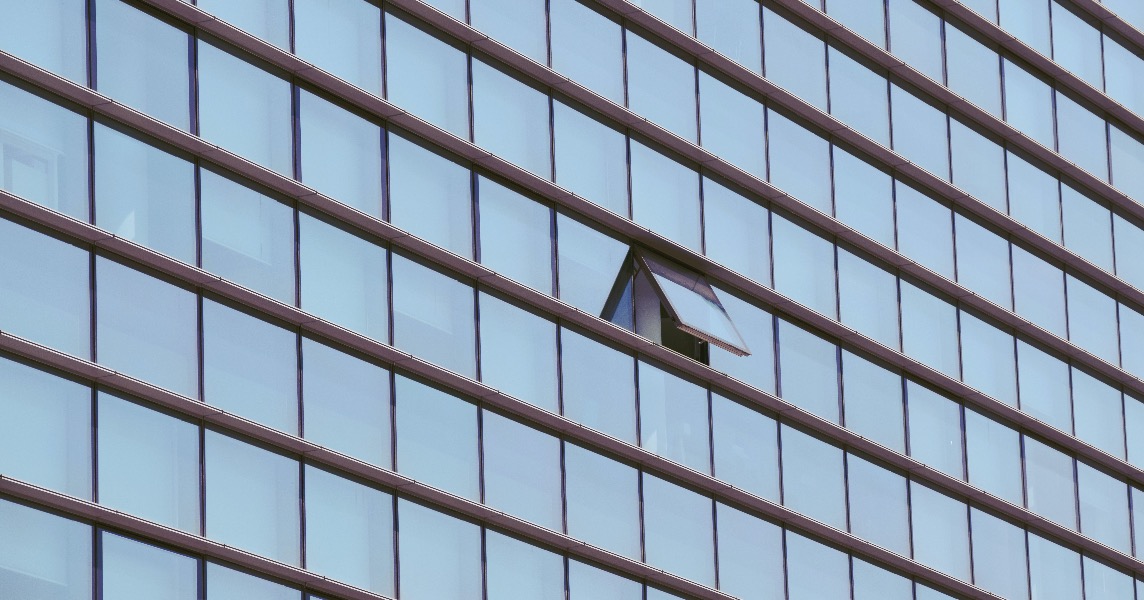Experts discuss evolving office space needs post-COVID - from air quality to hybrid layouts, purpose-led design, and focusing on employee experience.
By Making Moves London
October 15, 2021
Taking inspiration from Maslow’s Hierarchy of Needs – a five-tier model of human needs (physiological, safety, love and belonging, esteem and self-actualisation needs) – Andrew Krioukov at Said Business School and University of Oxford developed a model for optimum workplace productivity. This hierarchy of office needs comprises three essential real estate requirements – Core Needs, Space Needs and Productivity Needs.
Last week, our CEO and Founder Tobi Crosbie joined Lewis Barker, Director of Workplace Services & Real Estate in EMEA for Service Now, and Chris Davies, CEO at Uncommon, to discuss real estate needs on the Metrikus PropTech Ramble podcast.
Watch the discussion in full here.
Hosted by Metrikus COO Michael Grant, the podcast saw the three industry experts explore everything in workplace environment from the impact of Covid-19 and hybrid working models to purpose-led and people-first approaches to office space. Here’s an overview of what was discussed:
“In the post-pandemic world, there is a lot of conversation around air circulation and the environment you’re providing for staff,” explained Tobi. For example, guidance for minimum air ventilation for a space has increased from 8 litres per second per person to 10 litres. Plus, there have been notable studies into the effects of CO2 on cognitive performance; indeed, people working in environments with 1000 parts per million experience the same level of decline in cognitive function as those with a blood alcohol concentration of 0.1% or two pints of beer.
However, the pandemic has significantly increased awareness of and heightened concerns about the impact of the physical workplace on health in general – not just with regards to coronavirus. “For us,” observed Lewis from Service Now, “when we were trying to get people back to the office, safety was the number one need” – that is, safety in the sense of health and safety, rather than the security of the building itself.
“The priority for clients used to be reception, views and loos,” explained Tobi, “now it is more about getting the base build right”.
Hybrid working is also high on the agenda and the Making Moves Technical team have seen a significant increase in clients redesigning existing office space. For example, concentration pods for independent working or Zoom calls; open plan collaboration, meeting and socialising spaces; and reducing desk space or replacing desks altogether with lounge sofas and high benches for between-meeting tasks. In fact, we have oversized our breakout area at Making Moves – occupying 30% of our office space – for hosting meetings, client presentations, events and as a social space. As a result, our boardroom sits empty, which begs the question, do we need it?
Similarly, for Chris at Uncommon, workspaces “need to be constantly evolving” – “if the space is not being used it has to change”. Today’s workplaces should comprise a variety of different spaces for employees to complete various different tasks; that is, as Lewis suggested, space needs to be “purpose-led”.
“Looking at our stats,” observed Chris, “we have had more people in our buildings than before Covid”. Employees are very much back to the office, but their return has been motivated by a want rather than a demand. “We need to focus on the added-value [of the office],” continued Chris, “there is no point in being a box that holds laptops”.
This was echoed by Lewis who recommended organisations take a “people-led approach” to the workplace: “We don’t want to get people back in [the office] just to use our real estate, we want to add value […]and for people to be together from a cultural perspective”. It is therefore essential for organisations to listen to what people want from their working environment and understand how the office contributes to their productivity.
It is all about the employee experience, because, put simply, if employees are not happy with their working environment they will leave. Plus, low productivity and high employee turnover is a much greater cost to a business than office rents.
In office or at home?
Unanimously “in office”.
Sleep pods, Yes or No?
Chris: “Yes to meditation pods, no to sleep pods”.
Standing desks or sitting desks?
Lewis: “Standing. We give everyone sit-to-stand desks”.
Face-to-face or virtual meetings?
Unanimously “face-to-face”.
What advice would you give to your younger self?
Tobi: “Don’t put too much pressure on yourself, because it all comes good in the end”.
If you’d like to continue this conversation and discuss your workplace needs, contact our team today by getting in touch here.
